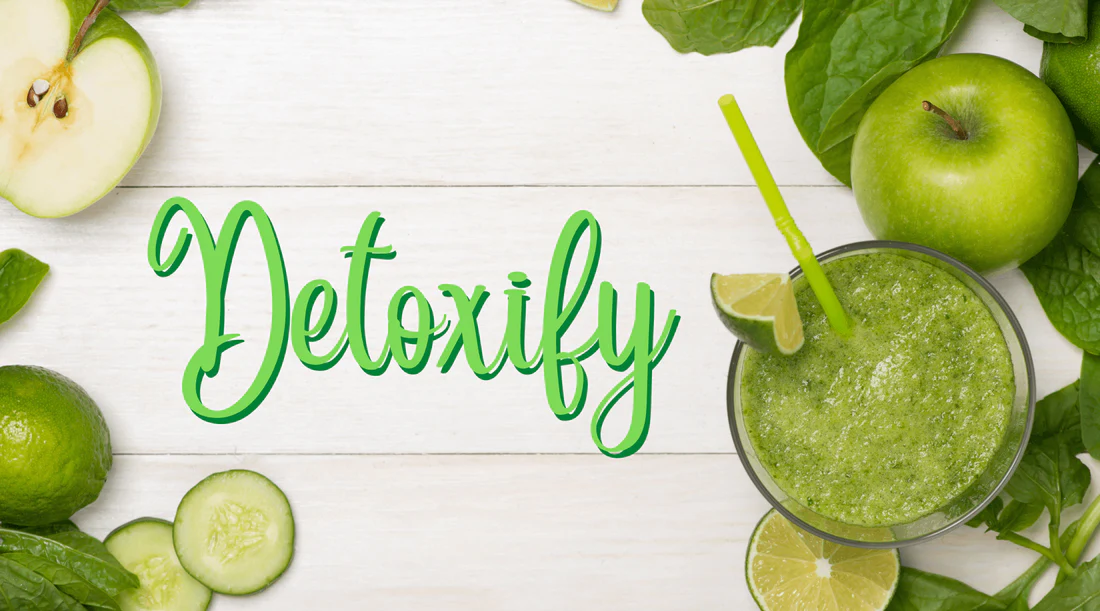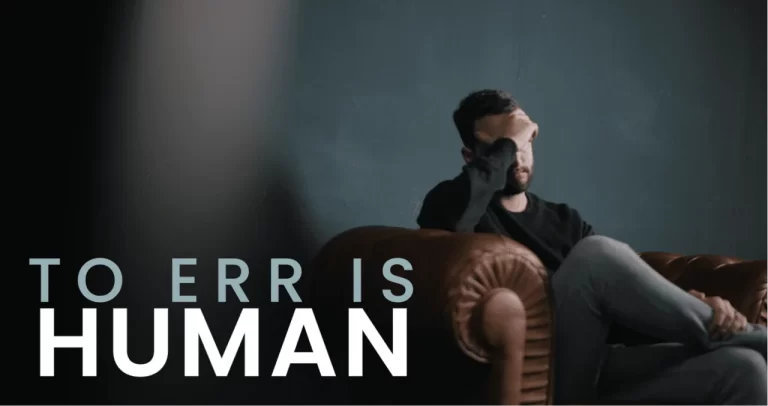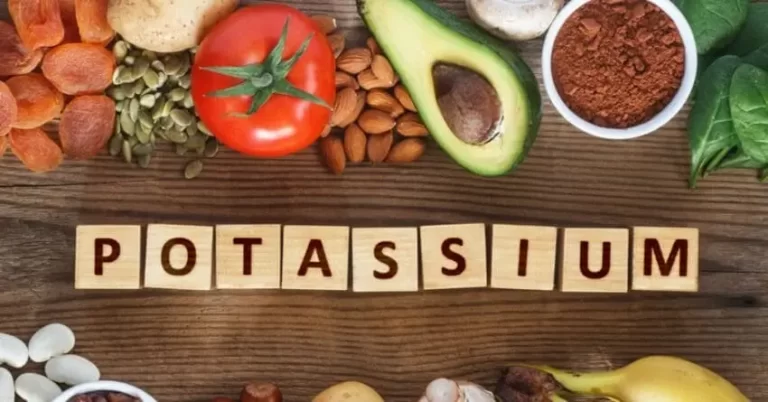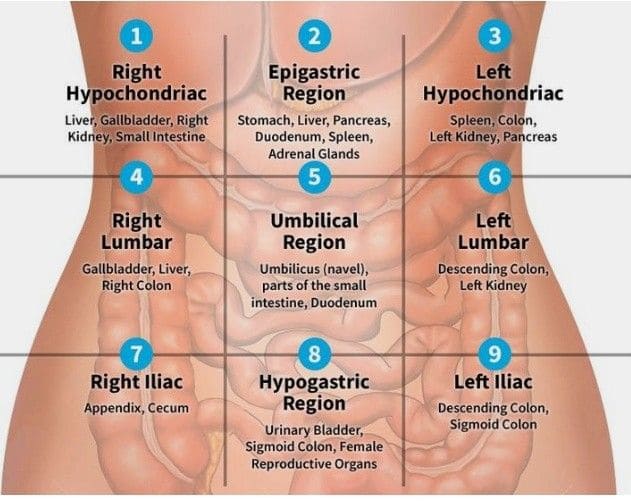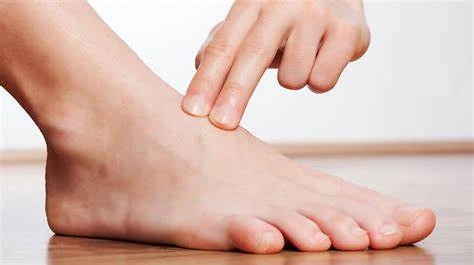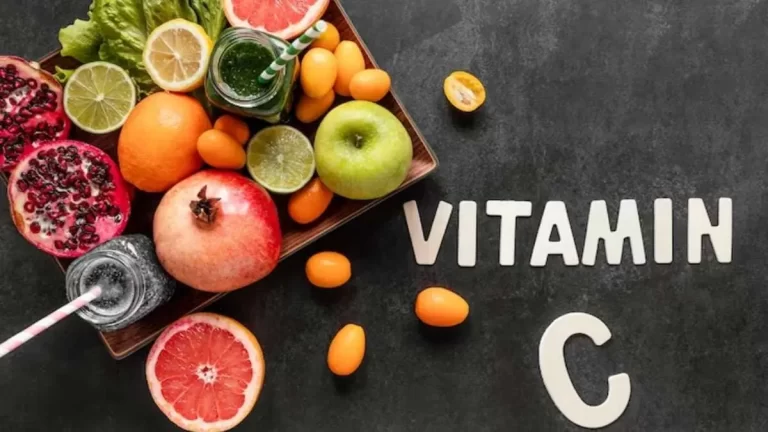Detoxify: How to Detox Your Body
Detoxify, or detox, is “The procedure of clearing toxins from the body”. Toxins are harmful substances that can come from various sources, including the environment, diet, and lifestyle.
The body has a natural detoxification system involving the liver, kidneys, lungs, and skin. However, some people believe that following a specific diet or using special products can help boost the body’s detoxification process and improve health.
This article explores the various myths surrounding detox diets and suggests processes to enhance the body’s natural detoxification processes.
What is Detoxify?
Detoxify or a full-body detox is a common term. It usually refers to following a certain diet or utilizing special items that purport to cleanse your body of toxins, hence boosting health and aiding weight reduction. However, the body “Detoxifies” itself naturally and doesn’t require special diets or expensive supplements to eliminate toxins.
A full-body detox naturally concerns following a diet to clear toxins from the body. Yet, your body is well-equipped to eliminate these toxic substances without dietary intervention or supplementation. Pollutants, synthetic chemicals, heavy metals, and processed foods are all examples of toxins that can harm one’s health.
Many diets and supplements claim that they ‘detoxify’ the body from these chemicals, although these claims are usually unsupported by research. The body normally eliminates toxic substances through the kidneys, liver, digestive system, skin, and lungs as part of normal organ function.
There is a wide range of detox diets and regimens available, but most involve some combination of the following:
- Fasting or eating only certain foods
- Drinking plenty of fluids, such as water, juices, or smoothies
- Taking supplements or herbs
- Using colon cleanses or other detoxification methods
Some people claim that detoxing can help to improve energy levels, lose weight, clear the skin, and boost overall health.
Yet, there is little scientific proof to support these claims. Some detox diets and techniques can be dangerous, especially for people with underlying health conditions.
If you wish to begin a detoxification program, you should first consult with your doctor. They can assist you in selecting a safe and successful detox program that is appropriate for you.
Types of Detoxify
Alcohol detoxify
Alcohol detoxification is the process of removing alcohol from the body and managing the withdrawal symptoms that can occur. It is important to seek medical supervision when detoxing from alcohol, as the withdrawal symptoms can be severe and even life-threatening.
The symptoms of alcohol withdrawal can vary depending on the severity of the alcohol use disorder and the length of time the person has been drinking heavily. The effects of withdrawal might appear as soon as you stop consuming alcohol and last for many days or even weeks.
Some common symptoms of alcohol withdrawal include:
- Anxiety
- Tremors
- Sweating
- Nausea and vomiting
- Insomnia
- Headaches
- Difficulty concentrating
- Agitation
- Hallucinations
- Seizures
Alcohol detoxify treatment
Several medications and supportive care are frequently utilized in alcohol detoxification therapy. Medications are used to manage the withdrawal symptoms and keep the person safe. Supportive care may include counseling, nutrition counseling, and medical monitoring.
The most commonly used medications for alcohol detoxification are benzodiazepines. Benzodiazepines are sedatives that help to reduce anxiety, tremors, and other withdrawal symptoms. Other medications may be used to treat specific withdrawal symptoms, such as anticonvulsants to prevent seizures and beta-blockers to treat high blood pressure.
Drug detoxify
Drug detoxification is the process of removing drugs from the body and managing the withdrawal symptoms that can occur. When detoxing from drugs, it is essential to seek medical attention since withdrawal symptoms can be painful, even fatal.
The symptoms of drug withdrawal can vary depending on the type of drug, the severity of the drug use disorder, and the length of time the person has been using drugs heavily. Withdrawal symptoms can begin within hours of quitting using drugs and can last for several days or even weeks.
Some common symptoms of drug withdrawal include:
- Anxiety
- Depression
- Irritability
- Muscle Fatigue
- Insomnia
- Headaches
- Muscle aches
- Nausea and vomiting
- Diarrhea
- Cravings
- Seizures
Drug detoxify treatment
Drug detoxification treatment typically involves a combination of medications and supportive care. Medications are used to manage withdrawal symptoms and keep the person safe. Supportive care may include counseling, nutrition counseling, and medical monitoring.
Once a person has completed detoxification, they are ready to begin the next phase of treatment, which may include rehabilitation, counseling, and support groups. The goal of long-term treatment is to help the person maintain sobriety and prevent relapse.
Please get professional help if you or someone you know is suffering from an addictive substance use disorder.
Here are some additional drug detoxification ideas.
- Be open-minded and truthful with your physician about your narcotic usage. This will help them to develop the safest and most effective detoxification plan for you.
- Follow your doctor’s instructions carefully. This includes taking all medications as prescribed and attending all scheduled appointments.
- Get enough sleep and eat a healthy diet. Your body will repair and repair as a result of this.
- Have a support system in place. Talk to your family and friends about your recovery and tell them how they can support you.
Detoxification is just the first phase in healing. It is essential to resume treatment to maintain soberness & control reversion.
Metabolic detoxify
Metabolic detoxification is the process by which the body removes unwanted and potentially harmful substances. These substances can be either endogenous (produced by the body itself) or exogenous (from the environment).
The body has a complex system of detoxification enzymes that break down and eliminate toxins. However, this system can be overwhelmed by exposure to high levels of toxins or by certain genetic factors.
You may help your metabolic detoxification system by doing the following things:
- Eat a healthy diet. A healthy diet should be rich in fruits, vegetables, and whole grains. These foods are good sources of antioxidants and other nutrients that help to support the detoxification process.
- Drink plenty of water. Water helps to transport toxins through the body and eliminate them. Try to consume eight glasses of water or more each day.
- Get regular exercise. Exercise helps to stimulate the lymphatic system, which is responsible for removing toxins from the body. On most days of the week, try to get in at least 30 minutes of moderate-intensity exercise.
- Avoid smoking and secondhand smoke. Smoking exposes the body to a variety of toxins, including carcinogens.
- Reduce your exposure to chemicals in the environment. This includes things like pesticides, herbicides, and household cleaners.
- Use natural personal care products. Many conventional personal care products contain harsh chemicals that can be absorbed into the skin.
In addition to these general tips, there are some specific foods and supplements that can help to support metabolic detoxification.
Foods that support metabolic detoxify
- Beets
- Broccoli
- Cabbage
- Citrus fruits
- Garlic
- Ginger
Supplements that support metabolic detoxify
- Glutathione: Glutathione is a tripeptide that is produced naturally by the body. It is a powerful antioxidant that can help to protect the body from damage and promote the elimination of toxins.
- Activated charcoal: Activated charcoal is a porous substance that can bind to toxins and promote their elimination.
- Milk thistle: Milk thistle contains silymarin, a compound that can help to protect the liver from damage.
- Alpha-lipoic acid: Alpha-lipoic acid is an antioxidant that can help to promote detoxification in the liver and other organs.
If you are considering taking any supplements to support metabolic detoxification, it is important to talk to your doctor first. This is particularly important if you have underlying medical issues or are taking medication.
Alternative medicine
Alternative medicine detoxification is the use of alternative medicine therapies to support the body’s natural detoxification process. Some of the most common alternative medicine therapies used for detoxification include:
- Herbal medicine: Certain herbs, such as dandelion root, milk thistle, and burdock root, are traditionally used to support liver function and detoxification.
- Acupuncture: Acupuncture can be used to improve circulation and lymphatic drainage, which can help to promote the elimination of toxins from the body.
- Massage therapy: Massage therapy can help to relax muscles, improve circulation, and promote the elimination of toxins from the body.
- Chiropractic care: Chiropractic care can help to improve spinal alignment and nerve function, which can support the body’s natural detoxification process.
- Homeopathy: Homeopathy can be used to support the body’s natural detoxification process by boosting the immune system and reducing inflammation.
Other alternative medicine therapies that may be used for detoxification include naturopathy, yoga, meditation, and aromatherapy.
Why Should You Detoxify Your Body?
There are several reasons why you may wish to cleanse your body. Among the most general reasons are:
- Improved energy levels. Toxins can sap your energy and make you feel tired and sluggish. Detoxification can help to remove these toxins and boost your energy levels.
- Better digestion. Toxins can also disrupt your digestive system, leading to problems such as bloating, constipation, and diarrhea. Detoxification can help to improve your digestion and make you feel better overall.
- Clearer skin. The skin is one of the body’s main organs of elimination. When your system is overloaded with toxins, it can show up on your skin in the form of breakouts, acne, and other skin problems. Detoxification can help to clear up your skin and make it look healthier.
- Stronger immune system. Toxins can weaken your immune system and make you more susceptible to illness. Detoxification can help to strengthen your immune system and help you to stay healthy.
- Reduced risk of chronic diseases. Toxins have been linked to several chronic diseases, including cancer, heart disease, and Alzheimer’s disease. Detoxification can help to reduce your risk of developing these diseases.
- Weight loss. Detoxification can help to remove excess water weight and promote weight loss.
- Allergies. Detoxification can help to reduce inflammation and improve allergy symptoms.
- Digestive problems. Detoxification can help to improve digestion and relieve symptoms of digestive problems such as bloating, constipation, and diarrhea.
- Autoimmune diseases. Detoxification can help to reduce inflammation and improve symptoms of autoimmune diseases such as rheumatoid arthritis and lupus.
It is important to note that there is no scientific evidence to support the claim that detoxification can cure any specific disease. However, many people report feeling better overall after detoxifying their bodies.
If you are considering detoxifying your body, it is important to talk to your doctor first. They can help you to develop a safe and effective detox plan that is right for you.
How Does Detoxify Work?
Detoxification means cleansing the blood. This is done by eliminating toxins from the blood in the liver, where toxins are processed for removal. During a detox, the body also releases toxins through the kidneys, intestines, lungs, lymphatic system, & skin. When these systems are damaged, toxins are not effectively filtered and the body suffers.
A body detox schedule can benefit the body’s biological cleaning procedure by doing the following:
- Resting the organs through fasting.
- Stimulating the liver to eliminate toxins.
- Boosting elimination through the intestines, kidneys, & skin.
- Improving circulation of the blood.
- Refueling the body with healthy nutrients.
How Will You Know If Your Body Requires A Detoxify?
Everybody should cleanse at least once a year. However, nursing women, children, and patients with chronic degenerative disorders, cancer, or TB should avoid detoxifying. Consult your doctor if you are unsure whether detoxing is good for you.
Today, with more pollutants in the atmosphere than ever before, it’s critical to detox. Detoxification is advised for symptoms such as:
- Unexplained fatigue
- Sluggish elimination
- Irritated skin
- Allergies
- Low-grade infection
- Puffy eyes or bags under the eyes
- Bloating
- Menstrual problems
- Mental confusion
What Is the Best and Most Effective Way to Detoxify Your Body?
Supporting your body’s natural detoxification processes is the greatest method for purifying it. This can be done by:
Stop smoking or drinking
Both tobacco smoke and alcohol put pressure on the body in different ways. Alcohol, in particular, hurts the liver, the body’s primary detoxifying organ.
If a person smokes or drinks regularly, they can start a detox by cutting back or quitting completely.
Stay hydrated
Water consumption assists in the elimination of toxins from the body. Regularly take at least 8 glasses of water. How much water a person needs is determined by their degree of physical activity and age, among other things.
Eating a healthy diet
An adequate diet helps the body’s detoxification mechanism to function properly. Refined carbs, added sugars, and processed meals should be avoided. A nutritious diet contains a variety of fruits and vegetables, whole grains, and lean protein. These foods are rich in nutrients that help the body to detoxify naturally.
Get enough sleep
Sleep enables the brain to eliminate hazardous waste products that are collected throughout the day. As a result, proper sleep is a key component of detoxification. Try to gain 7-8 hours of sleep daily night.
Getting regular exercise
Exercise helps to improve circulation and promote the lymphatic system, which is responsible for removing toxins from the body. Aim for at least 30 minutes of average-intensity activity most daytime of the week.
Improve the quality of your indoor air
While it is not always possible to manage pollution exposure outside, there are actions that people may take to reduce exposure indoors, such as:
Requesting that household members smoke outside; avoiding goods containing high levels of volatile organic compounds (VOCs), such as aerosols and air fresheners; and keeping rooms properly ventilated while using solvents, domestic paints, and other DIY materials.
Detoxify Foods and Drinks
Detoxify Foods
- Fruits and vegetables: Fruits and vegetables are packed with antioxidants, vitamins, and minerals that help the body detoxify naturally. Some of the best detoxifying fruits and vegetables include:
- Citrus fruits: Citrus fruits like Berries are a good source of vitamin C, a powerful antioxidant that can help to protect the body from damage.
- Cruciferous vegetables (such as broccoli, Brussels sprouts, and cauliflower): Broccoli contains sulforaphane, a compound that can help to activate detoxification enzymes.
- Cabbage: Cabbage is a good source of fiber and glucosinolates, which can help bind to toxins and promote their elimination.
- Spinach, kale, and collard greens like leafy greens.
- Garlic: Garlic contains sulfur compounds that can help to activate detoxification enzymes.
- Beets: Beets are a good source of betalains, which are antioxidants that can help to protect the liver and other organs from damage.
- Ginger: Ginger contains gingerol, a compound that can help to support digestion and liver function.
- Whole grains: Whole grains are a good source of fiber, which helps to keep the digestive system healthy and regular. This is important for detoxification, as it helps the body to eliminate toxins through the stool. Whole grains can be acquired from the following sources:
- Oats
- Brown rice
- Quinoa
- Whole-wheat bread and pasta
- Lean protein: Lean protein is important for overall health, but it can also be helpful for detoxification. Protein helps the body to build and repair tissues, and it can also help to bind to toxins and transport them out of the body. The following are some great sources of lean protein:
- Chicken
- Fish
- Beans
- Lentils
- Tofu
- Healthy fats: Healthy fats, such as those found in olive oil, avocados, and nuts, can also be helpful for detoxification. These fats help to support liver function and the production of bile, which is important for the removal of toxins from the body.
Detoxify Drinks
- Water: Water is necessary for detoxification since it aids in the body’s removal of toxins. Daily take a minimum of 8 glasses of water.
- Green tea: Green tea contains antioxidants that can help to protect the liver and promote detoxification.
- Lemon water: Lemon water has diuretic properties, which can help flush toxins out of the body. It is even a great origin of vitamin C, which is an antioxidant.
- Ginger tea: Ginger tea can help to improve digestion and promote liver function.
- Beet juice: Beet juice is a good source of antioxidants and other nutrients that can support detoxification.
It is important to note that there is no scientific evidence to support the idea that detox diets or cleanses are necessary or effective. However, eating a healthy diet and drinking plenty of water can help to support the body’s natural detoxification process.
Ayurvedic detoxify
Ayurvedic detoxification is a holistic approach to cleansing the body of toxins and impurities. It is based on the principle that good health depends on a balance of the three doshas: Vata, Pitta, and Kapha. When the doshas are out of balance, toxins can accumulate in the body, leading to various health problems.
Ayurvedic detoxification aims to restore balance to the doshas and promote the elimination of toxins. This is done by using several approaches, including:
- Diet: Eating a healthy diet that is appropriate for your dosha is essential for detoxification. This means avoiding processed foods, sugary drinks, and excessive amounts of meat and dairy. Instead, focus on eating fresh, whole foods, such as fruits, vegetables, whole grains, and legumes.
- Herbal remedies: Several Ayurvedic herbs can be used to detoxify the body. Some popular herbs include Triphala, Amalaki, and Guggul. The herbs mentioned above can be consumed as a pill, powder, or tea.
- Panchakarma: Panchakarma is a traditional Ayurvedic detoxification treatment that involves five specific procedures: Vamana (emesis), Virechana (purgation), Basti (medicated enema), Nasya (nasal administration of medicated oils), and Raktamokshana (bloodletting). Panchakarma is a very intensive detox treatment and should only be performed under the supervision of a qualified Ayurvedic practitioner.
Other Ayurvedic detoxification methods include:
- Abhyanga: This is a warm oil massage that helps to loosen toxins from the body’s tissues.
- Swedana: This is a sweat therapy that helps to open the pores and release toxins.
- Yoga and meditation: These practices help to promote overall health and well-being, and can also support detoxification.
How to detoxify using Ayurvedic methods:
- Start with a gentle detox. If you are new to Ayurvedic detoxification, start with a gentle program and gradually increase the intensity as tolerated.
- Eat a healthy diet. Eat a diet that is appropriate for your dosha and avoid processed foods, sugary drinks, and excessive amounts of meat and dairy. Focus on eating fresh, whole foods, such as fruits, vegetables, whole grains, and legumes.
- Drink plenty of water. Water is essential for detoxification, so be sure to drink plenty of fluids throughout the day.
- Take Ayurvedic herbs. Several Ayurvedic herbs can be used to detoxify the body. Some popular herbs include Triphala, Amalaki, and Guggul. The herbs mentioned above can be consumed as a pill, powder, or tea.
- Try Abhyanga. Abhyanga is a warm oil massage that helps to loosen toxins from the body’s tissues. If you are new to Abhyanga, you can have it done by a professional massage therapist or learn how to do it yourself at home.
- Try Swedana. Swedana is a sweat therapy that helps to open the pores and release toxins. You can try Swedana by taking a hot bath or sauna, or by using a home sweat lodge.
- Practice yoga and meditation. Yoga and meditation help to promote overall health and well-being, and can also support detoxification. There are many different types of yoga and meditation, so find a style that works for you and stick with it.
Before beginning any detox program, see a qualified Doctor/ practitioner if you have any underlying health concerns.
Misconceptions about detoxify
Detoxification is the disposal of poisons from the body. There are many different detox methods, but they all share the same goal: to help you feel better and improve your overall health.
However, there are also many misconceptions about detoxifying. Here are a few popular examples:
- Your body needs outside help to detox. Your body is perfectly capable of detoxifying itself on its own. It has a complex system of organs, including the liver, kidneys, and lungs, that work together to filter and remove toxins from the body.
- Detoxing can help you lose weight. Any weight loss that occurs during a detox is usually due to water loss, not fat loss. Once you resume your normal diet, the weight will likely come back on.
- Detoxing can cure diseases. There is no scientific evidence to support the claim that detoxing can cure any disease. Some detox techniques are dangerous and may make you sick.
- Sweating can help you detox. Sweat is mostly water and salt. It does not contain any significant amount of toxins.
- Colon cleanses can help you detox. Colon cleanses are not necessary and can be harmful to your health. They can flush out important bacteria and electrolytes and can lead to dehydration and diarrhea.
Other misconceptions about detoxifying include:
- Detoxes need to be extreme. There is no need to follow a restrictive diet or take special supplements to detox. Simply eating a healthy diet, getting regular exercise, and getting enough sleep are the best ways to support your body’s natural detoxification process.
- Detoxes are a quick fix. Health issues do not have a fast remedy. Detoxing is not a magic bullet that will cure all of your ailments.
- Detoxes are safe for everyone. specific detoxification techniques may be harmful, particularly to those who already have specific medical issues. Consult with a medical specialist before initiating any new detox plan.
If you have thoughts about a detox program, do some investigation and speak with your doctor previously. Some detox plans might be dangerous and may not be appropriate for you.
Tips for Detoxify
The body has its natural detoxification system, but there are things you can do to support it. Here are some tips:
- Eat a healthy diet. Consuming a wide range of fruits, vegetables, and whole grains is required. These foods are rich in antioxidants and fiber, which can help to flush out toxins.
- Drink plenty of water. Water helps to transport toxins through the body and eliminate them. Regularly, drink a minimum of 8 glasses of water.
- Limit alcohol and processed foods. Alcohol and processed foods can put a strain on the liver, which is the body’s main detoxification organ.
- Get enough sleep. Sleep gives the body time to repair and regenerate. Try to obtain seven to eight hours of sleep daily night.
- Exercise regularly. Exercise helps to stimulate the lymphatic system, which is responsible for removing toxins from the body. On an average day of the week, aim for at least 30 minutes of moderate-intensity exercise.
In addition to these general tips, there are some other things you can do to support your body’s detoxification system:
- Eat detoxifying foods. Some foods are particularly good for detoxification, such as beets, broccoli, cabbage, citrus fruits, garlic, and ginger.
- Drink herbal teas. Certain herbs, such as dandelion root, milk thistle, and burdock root, can help to support liver function and detoxification.
- Take supplements. Some supplements, such as glutathione and activated charcoal, can also help to support detoxification.
It is vital to realize that there is no perfect detoxification strategy. Detoxification works differently in each individual. It is also important to talk to your doctor before starting any new detox program, especially if you have any underlying health conditions.
Here are some additional tips for detoxification:
- Avoid smoking and secondhand smoke. Smoking exposes the body to a variety of toxins, including carcinogens.
- Reduce your exposure to chemicals in the environment. This includes things like pesticides, herbicides, and household cleaners.
- Use natural personal care products. Many conventional personal care products contain harsh chemicals that can be absorbed into the skin.
- Sweat regularly. Sweating helps to eliminate toxins from the body. You can sweat through exercise, saunas, or hot baths.
By following above mention tips, you can help your body detoxify itself naturally and improve your overall health.
FAQs
What is the effect of detoxification on the body?
Detoxification essentially indicates purifying the blood. This is achieved by the liver, which also processes toxins for excretion, removing contaminants from the blood. Toxins are also removed from the body during detoxification via the kidneys, intestines, lungs, lymphatic system, and skin.
What should I drink to detox my body?
While numerous elements may be used in detox water, some of the more common ones include lemon. Lemon is a natural detoxifier that also improves digestion. Others are Watermelon, Aloe vera, Cucumber, Ginger, Blueberries, Cucumber, and mint water.
How can I detoxify my body naturally?
While detox diets seem appealing, your body is perfectly able to deal with toxins and other undesired things.
Limit your alcohol consumption.
Concentrate on sleeping.
Drink plenty of water.
Reduce your consumption of sugar and processed meals.
Consume antioxidant-rich foods.
Consume prebiotic-rich meals.
Reduce your salt consumption.
Continue to be active.
What is the best home cure for detoxifying your stomach?
Honey with lemon water: Drink warm water with fresh lemon juice, one teaspoon of honey, and a bit of salt on an empty stomach in the morning. Fruit and vegetable juice fasts and cleanses are examples of juices and smoothies. Apple, lemon, and aloe vera juices aid in colon cleaning.
How does Ayurveda detoxify?
To promote organ function, eat simple foods made at home and aim to include turmeric, Triphala, ginger, Ashwagandha, and neem in your diet. Reduce your dairy consumption and replace it with soups, coconut water, fresh fruit juices, and stews to flush toxins from your system.
References
- Van De Walle Ms Rd, G. (2023, May 16). What is a full-body detox? Healthline. https://www.healthline.com/nutrition/how-to-detox-your-body#Common-misconceptions-about-detoxing
- Wikipedia contributors. (2023b, September 20). Detoxification. Wikipedia. https://en.wikipedia.org/wiki/Detoxification
- Gaiam. (2020, November 13). 10 ways to Detoxify your body Naturally. Gaiam. https://www.gaiam.com/blogs/discover/10-ways-to-detoxify-your-body#:~:text=Basically%2C%20detoxification%20means%20cleansing%20the,skin%20during%20a%20body%20detox.
- Morales-Brown, L. (2021, January 21). What is a full body detox, and do they work? https://www.medicalnewstoday.com/articles/full-body-detox
- Admin. (2023, May 6). What Is Detoxification? Its Types And Benefits – Bansal Hospital Bhopal. Bansal Hospital Bhopal. https://bansalhospital.com/what-is-detoxification-its-types-and-benefits

